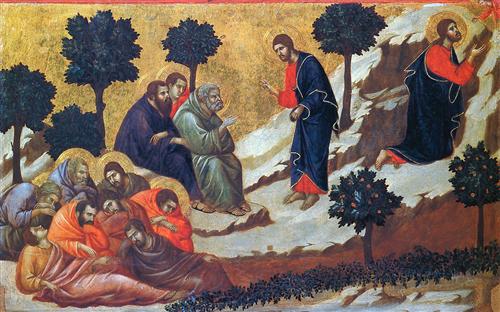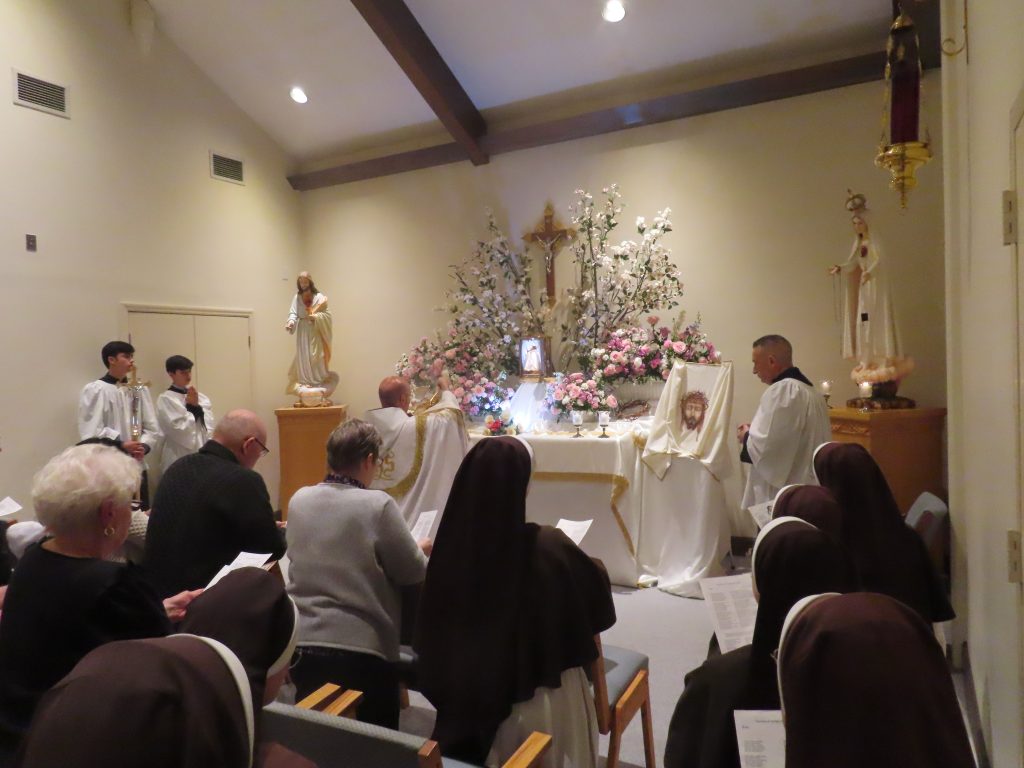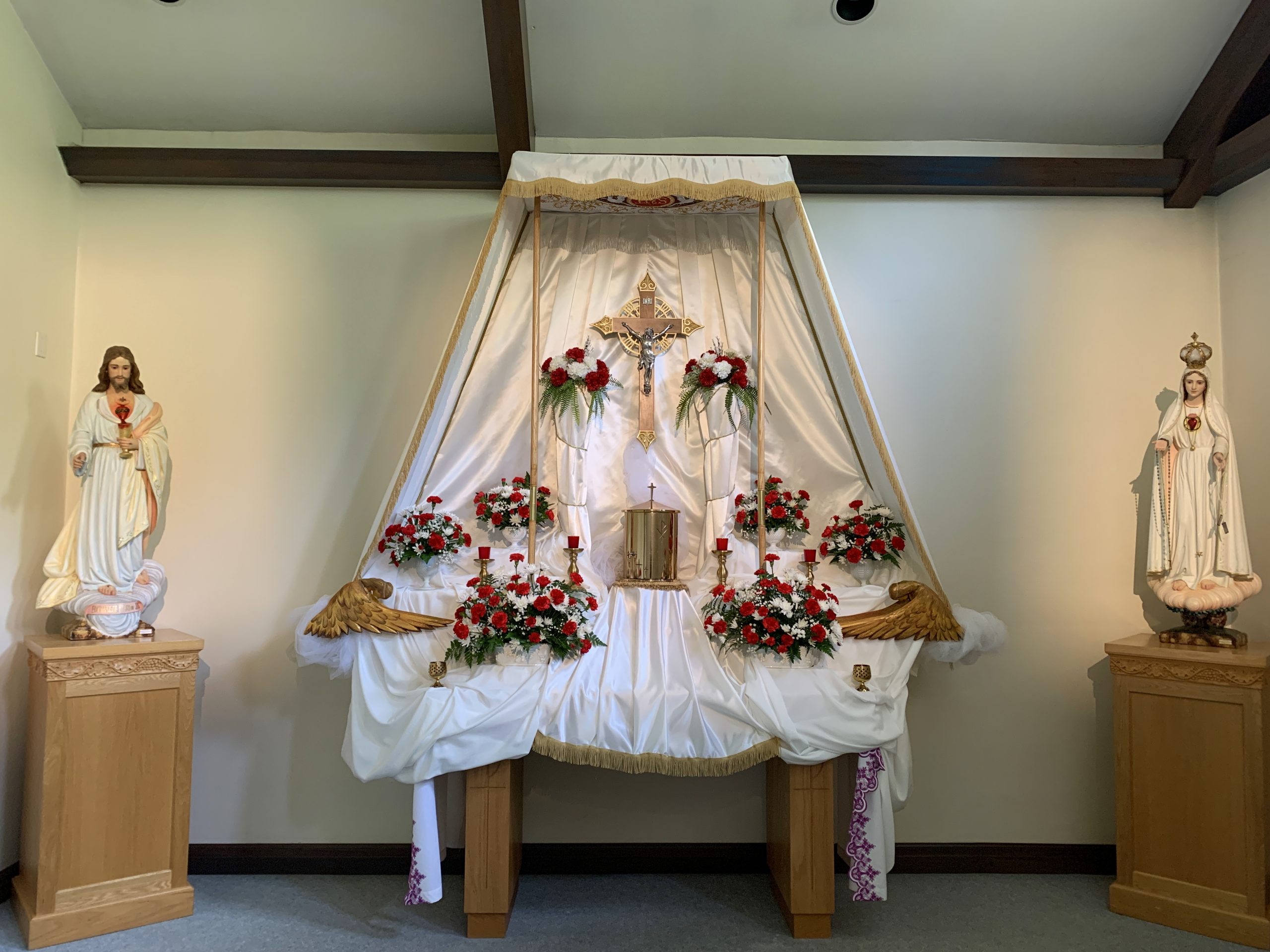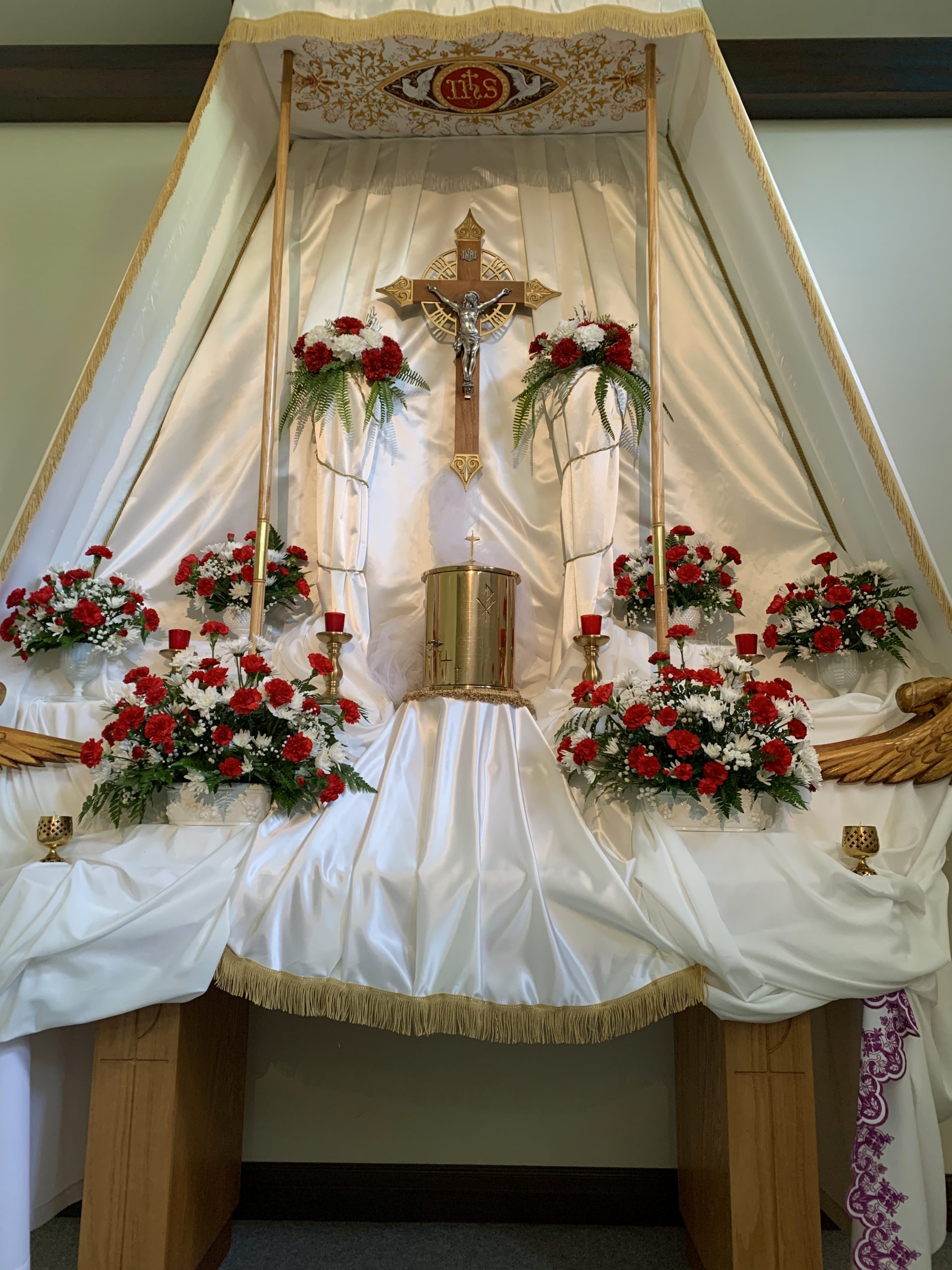April 17, 2025
The Altar of Repose

So much is held within these most Sacred days of the Triduum celebrations. One of the most precious traditions of this time, one the Sisters always look forward to with much anticipation, is the creating of an Altar of Reposition.
The custom is just one part of our entering into the events of the Passion, seeking to accompany Jesus and offer Him fitting love in His suffering. At the conclusion of the Holy Thursday Mass of the Last Supper, the priest carries our Eucharistic Lord in procession to a tabernacle other than the usual one, in remembrance of Jesus and the Apostles going out to Gethsemane. According to what space allows, the congregation are encouraged to visit this small altar, and to remain with Jesus for some part of these hours recalling the start of Jesus’ Passion.
At Casa Maria, the small ‘back chapel’ has always been the place for the Altar of Reposition, and is beautifully decorated by loving hands. Flowers, candles, canopies, and occasionally other symbolic pieces coordinate to illustrate the love contained in this vigil. The chapel is open to the public after the Mass of the Lord’s Supper, and then the Sisters keep a time of adoration as a community.

The following is a striking reflection on Jesus’ prayer in Gethsemane from Pope Benedict’s General Audience of February 1st, 2012
“…there is the third expression in Jesus’ prayer, and it is the crucial one, in which the human will adheres to the divine will without reserve. In fact, Jesus ends by saying forcefully: “yet not what I will but what you will” (Mk 14:36c). In the unity of the divine person of the Son, the human will finds its complete fulfilment in the total abandonment of the I to the You of the Father, called Abba.
St Maximus the Confessor says that ever since the moment of the creation of man and woman, the human will has been oriented to the divine will and that it is precisely in the “yes” to God that the human will is fully free and finds its fulfilment. Unfortunately, because of sin, this “yes” to God is transformed into opposition: Adam and Eve thought that the “no” to God was the crowning point of freedom, of being fully themselves.
On the Mount of Olives, Jesus brings the human will back to the unreserved “yes” to God; in him the natural will is fully integrated in the orientation that the Divine Person gives it. Jesus lives his life in accordance with the centre of his Person: his being the Son of God. His human will is drawn into the I of the Son who abandons himself totally to the Father. Thus Jesus tells us that it is only by conforming our own will to the divine one that human beings attain their true height, that they become “divine”; only by coming out of ourselves, only in the “yes” to God, is Adam’s desire — and the desire of us all — to be completely free. It is what Jesus brings about at Gethsemane: in transferring the human will into the divine will the true man is born and we are redeemed.
In Jesus’ prayer to the Father on that terrible and marvellous night in Gethsemane, the “earth” became “heaven”; the “earth” of his human will, shaken by fear and anguish, was taken up by his divine will in such a way that God’s will was done on earth. And this is also important in our own prayers: we must learn to entrust ourselves more to divine Providence, to ask God for the strength to come out of ourselves to renew our “yes” to him, to say to him “thy will be done”, so as to conform our will to his. It is a prayer we must pray every day because it is not always easy to entrust ourselves to God’s will, repeating the “yes” of Jesus, the “yes” of Mary.
The Gospel accounts of Gethsemane regretfully show that the three disciples, chosen by Jesus to be close to him, were unable to watch with him, sharing in his prayer, in his adherence to the Father and they were overcome by sleep. Dear friends, let us ask the Lord to enable us to keep watch with him in prayer, to follow the will of God every day even if he speaks of the Cross, to live in ever greater intimacy with the Lord, in order to bring a little bit of God’s “heaven” to this “earth”. Many thanks.”




